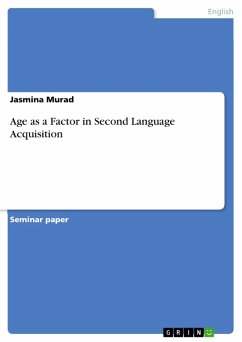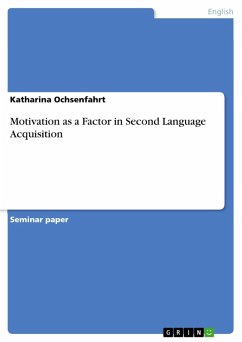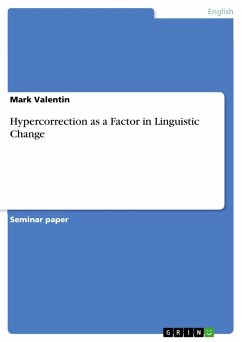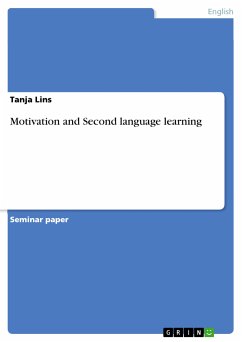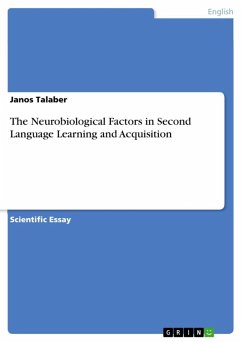Seminar paper from the year 2006 in the subject English Language and Literature Studies - Linguistics, grade: 1,0, Free University of Berlin (Institute for English Linguistics), course: Second Language Acquisition, language: English, abstract: One of the central questions that SLA has tried to answer is why learners of a non-native language (L2) evince such a high degree of interindividual variation in their final attainment relative to the L2 components and skills they have acquired. In order to offer a satisfactory response to this key issue, SLA researchers have posited the existence of a set of individual factors of a very different nature, such as aptitude, motivation, attitude, personality, and intelligence, among others, that might explain such variation. However, one of the most obvious potential explanations for the lack of success of L2 learners compared to L1 learners is that the acquisition of a foreign language begins at a later age than that of the mother tongue does. Thus, it has been prevalently assumed that age itself is a predictor of second language proficiency. This paper focuses on research which has been carried out on maturational constraints for SLA and hereby tries to find answers to various questions concerning age as a factor in SLA.
Dieser Download kann aus rechtlichen Gründen nur mit Rechnungsadresse in A, B, BG, CY, CZ, D, DK, EW, E, FIN, F, GR, HR, H, IRL, I, LT, L, LR, M, NL, PL, P, R, S, SLO, SK ausgeliefert werden.

